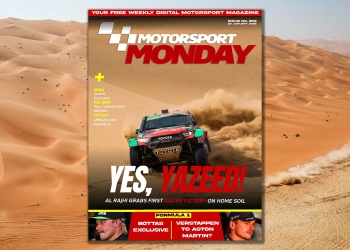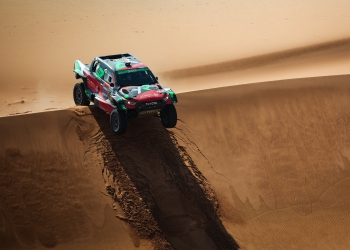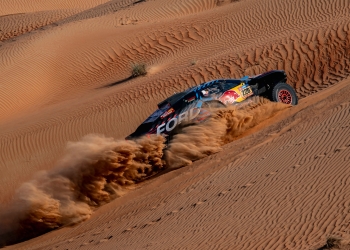Fernando Alonso has dismissed his chances of competing for victory at next month’s Dakar Rally, suggesting he will take a “different strategy” for his debut.
After walking away from Formula 1 at the end of 2018 Alonso completed a title-winning WEC season, taking a second Le Mans wins, and also triumphed at the Daytona 24 Hours.
Since his and McLaren’s disastrous tilt at the Indianapolis 500 Alonso has turned his attention to the Dakar Rally, which takes place in Saudi Arabia through January.
Alonso has taken part in a series of cross-country rallies and tests as part of his build-up, with he and co-driver Marc Coma most recently placing third at the Al Ula-Neom event.
“If I go there to enjoy the experience, yes,” said Alonso on whether he was ready for Dakar.
“If I go there to make the most if it, yes. If I think on Dakar in terms of winning Dakar, I don’t feel ready.
“I’m perfectly aware of what my lack of experience, I think in other races that I attempt, Indy or Le Mans or Daytona, I felt quite competitive, in a level I could fight for victory.
“In Dakar I don’t think I’m at that level, I need to be the feet at the ground, but I will play a different strategy. I will not be the fastest but hopefully I will be in a good position at the end.”
Alonso went on to describe the format of the events as the most challenging he has faced in his career.
“That’s the most extreme discipline in motorsport,” said Alonso.
“It cannot be more far apart, Formula 1 and Dakar. Driving technique is completely different, you’re using both feet all the time in Dakar, while in single-seaters you are not even allowed to touch the brake while throttling else the fuel consumption will get very high.
“Reading the terrain and know you are facing every kilometre [something different], while in the circuit everything is optimised lap after lap.
“And the distance, we are used to having one hour and a half of concentration, and even you have time on the straights to relax, you have time to touch the steering wheel to do different things.
“While there [in rallying] every metre is new so the attention is on another level, for eight or nine hours every day, so it’s quite difficult to adapt.”






